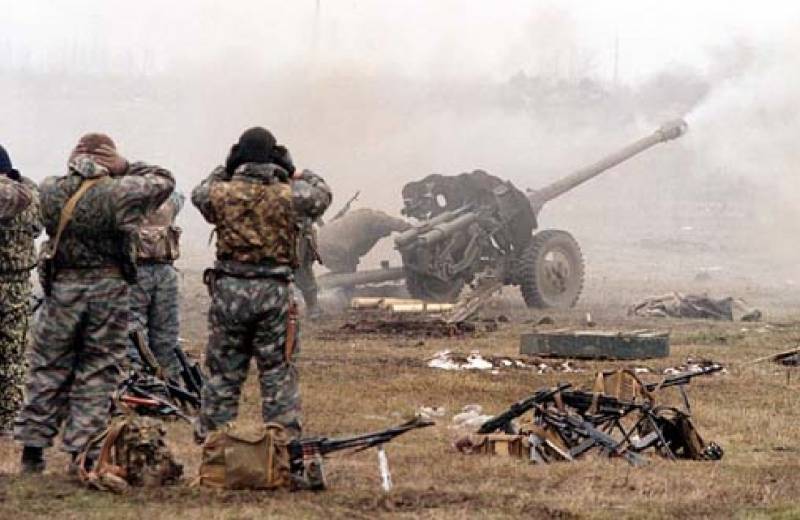The second Chechen war was inevitable: about the reasons

Despite the fact that our country in the Second Chechen War pursued the same goal - the establishment of a constitutional order in the region, this conflict was significantly different from the first, both for Russia and for the separatists.
One of the reasons why the second round of confrontation was inevitable is the Khasavyurt Agreement, signed on August 31, 1996. In fact, this agreement did not solve the problem of any of the parties. Russia withdrew its troops from the territory of Chechnya, at the same time, Ichkeria (a terrorist organization* banned in the Russian Federation) legally did not receive independence and diplomatic recognition from any country.
The question of the status of Chechnya was postponed until the end of December 2001. At that time, Ichkeria* was ruled by a self-proclaimed government headed by Aslan Maskhadov (listed in the Russian Federation as terrorists and extremists*).
However, the conflict could have been postponed until 2001, if not for one extremely important nuance. After the end of the First Chechen War in 1996, radical Islamists from Afghanistan and Saudi Arabia began to move to the self-proclaimed republic.
Subordinating exclusively to their field commanders, the militants began to trade in robbery, drug trafficking, organizing terrorist attacks and kidnapping. As an argument for their criminal actions, the Islamists used Wahhabism, which, after, in most cases, forceful planting in Chechnya, began to spread to other regions of the North Caucasus.
Naturally, such an extremely dangerous situation could not suit the Russian authorities. Actually, it did not suit Maskhadov*, to whom the "uninvited guests" did not obey. However, in an effort to maintain the influence of his teip, which controls the key oil companies of the republic, the self-proclaimed head of Ichkeria* in 1999 took the side of the Islamists.
As a result, out of about 10 militants, his troops made up about 25 percent. The remaining 75% were represented by radicals under the command of field commanders Shamil Basayev, Salman Raduyev, Arbi Barayev and Khattab, a native of Saudi Arabia (in the Russian Federation, all the above-mentioned militants are included in the list of terrorists and extremists).
In the same 1999, serious political events took place in Russia, which largely predetermined the outcome of the Second Chechen War. On August 9, 1999, Russian President Boris Yeltsin announced the appointment of FSB Director Vladimir Putin to the post of head of government, publicly introducing him as a further successor in his post.
It is worth noting that on the side of the Armed Forces of the Russian Federation during the CTO, announced on September 23, 1999, supporters of the teips led by Akhmat Kadyrov and Ruslan Yamadayev, who back in 1998 entered into an open conflict with the Wahhabis, spoke out.
Despite the fact that the Wahhabi militants, armed to the teeth, were defeated in less than a year, our country was ahead of a bloody terrorist war with numerous terrorist attacks carried out by the Islamists. It ended with the complete and unconditional victory of Russia only in 2009.
Information